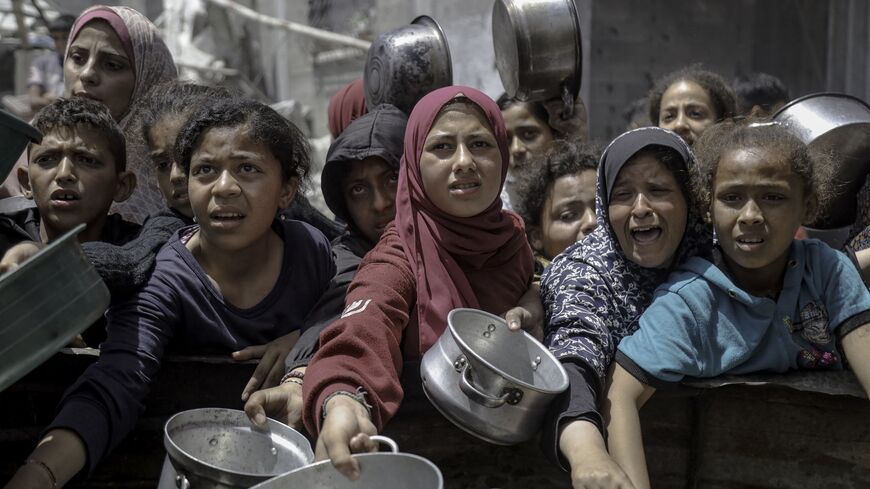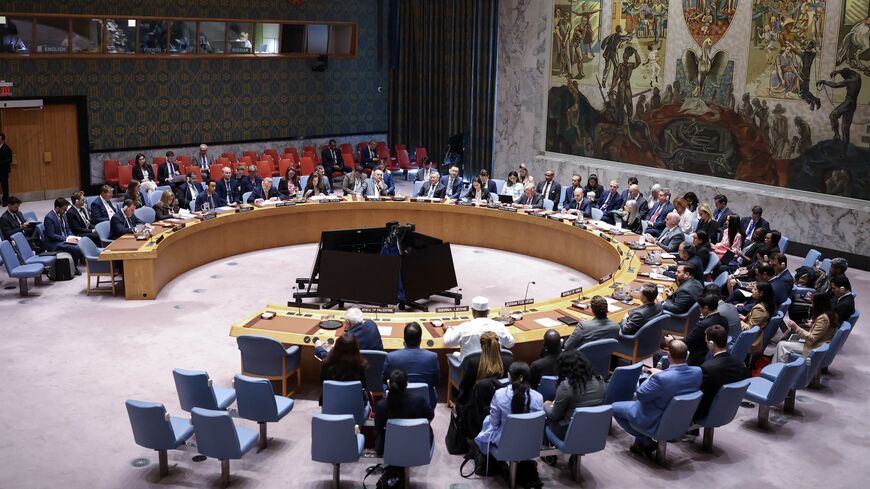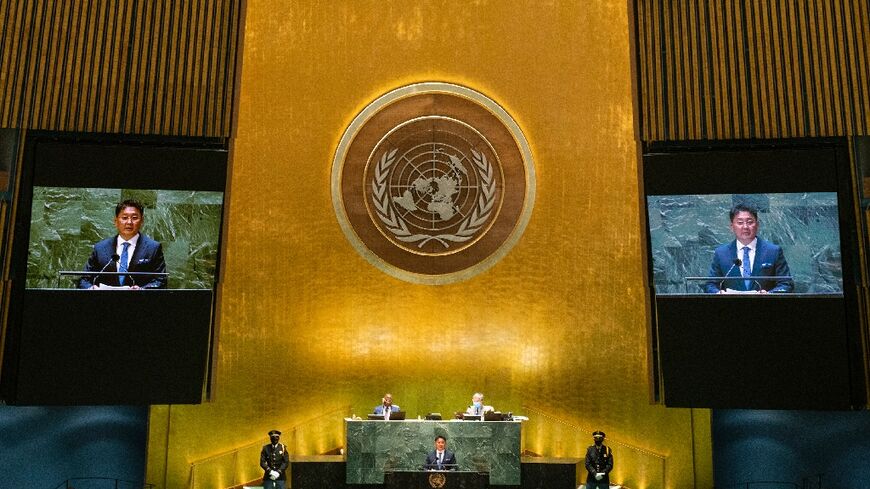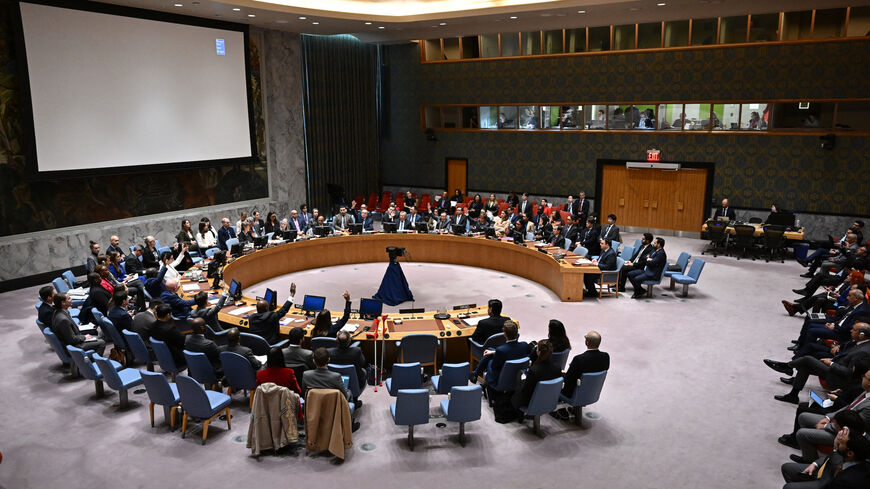US vetoes UN resolution demanding Gaza ceasefire
The blocked resolution also called for the release of hostages and the unrestricted flow of aid into Gaza.
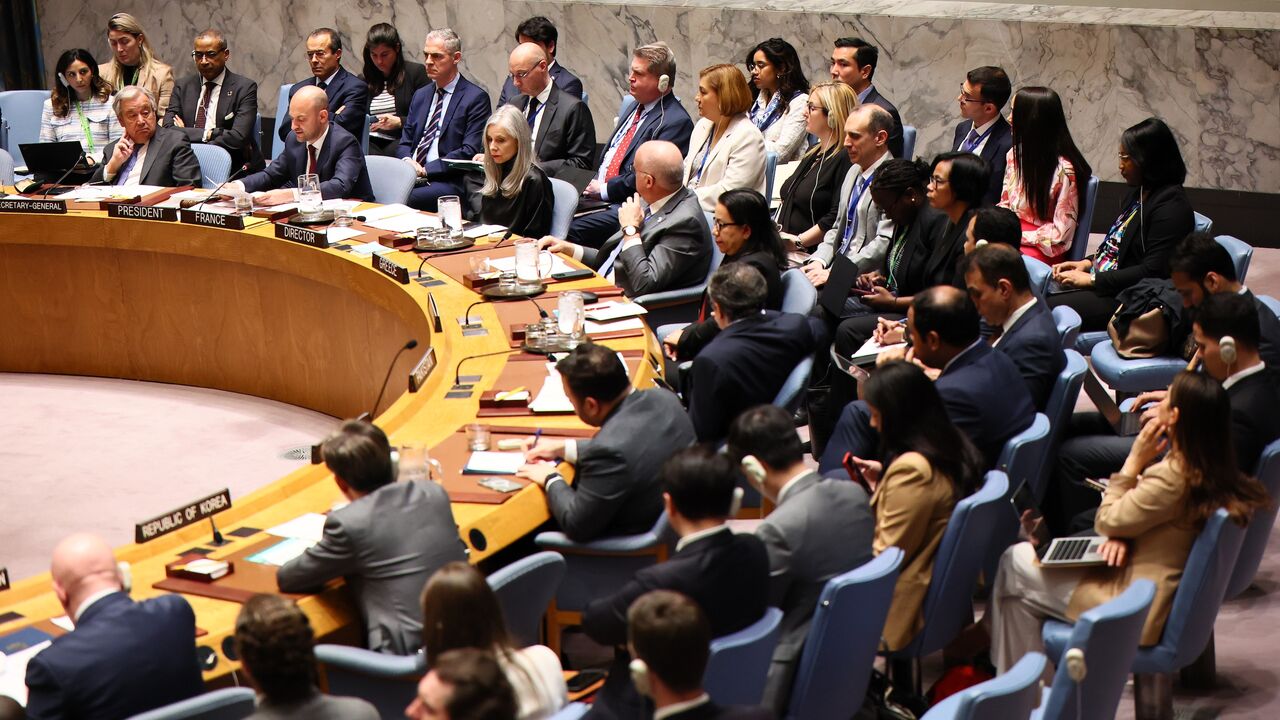
The United States on Wednesday vetoed a United Nations Security Council resolution calling for a ceasefire in the Gaza Strip, the release of hostages and the unrestricted flow of aid.
The council’s remaining 14 members voted in favor of the resolution, which demanded “an immediate, unconditional and permanent ceasefire in Gaza respected by all parties.”
Under the Biden administration, the United States repeatedly exercised its veto authority on the Security Council to shield Israel from resolutions that called for a ceasefire in Gaza. Two ceasefire texts were adopted with US support or abstention.
Dorothy Shea, the acting US representative to the United Nations, called the resolution “unacceptable” for its failure to condemn Hamas or demand its disarmament. Shea also slammed what she said was a “performative process” by other council members intended to force a US veto.
“Any product that undermines our close ally Israel's security is a nonstarter,” Shea said before the vote, adding the resolution would “undermine diplomatic efforts to reach a ceasefire.”
Since Israel resumed its offensive against Hamas in March, the United States — together with mediators Qatar and Egypt — has been unable to broker a new ceasefire in the Palestinian territory.
The militant group rejected the latest Israeli-backed US proposal for a 60-day truce, citing the need for a permanent ceasefire that guarantees Israel won’t resume the fighting once its hostages are released.
The failed resolution, introduced by the council's 10 elected members, also called for the “immediate, dignified and unconditional release of all hostages held by Hamas and other groups.” Israeli authorities believe about 20 of the remaining 58 hostages are still alive.
Hamas-led militants took 251 hostages in their Oct. 7 attack on southern Israel and killed some 1,200 people, mostly civilians. The death toll from Israel’s retaliatory air-and-ground campaign has surpassed 54,000, according to the Hamas-run Health Ministry in Gaza.
The resolution further called for the removal of all restrictions on humanitarian aid. Israel, which tightly controls access to Gaza and had imposed an 80-day blockade until last month, accuses Hamas of diverting or seizing UN-led aid deliveries.
The UN, aid agencies and former Biden administration officials say there is no evidence to suggest the group has diverted supplies in a major way.
“The intolerable situation in Gaza needs to end,” UK ambassador to the UN Barbara Woodward said following the vote.
“Palestinians, desperate to feed their families, have been killed as they try to reach the very few aid sites that have been permitted by Israel,” Woodward said.
The Security Council voted in the wake of a series of deadly shootings near aid distribution sites in the impoverished Palestinian enclave. The Gaza Humanitarian Foundation (GHF), a new Israeli- and US-backed initiative, paused its operations on Wednesday to address security concerns with the Israeli military.
Israeli forces opened fire on a crowd of Palestinians headed toward a distribution hub early Tuesday, killing at least 27 people and injuring dozens, according to local health officials. The military said it fired near a few “individual suspects” who ignored warnings and was looking into reports of civilian casualties.
The UN and international aid agencies refuse to work with GHF, concerned it allows Israel to weaponize food deliveries and encourages the forced displacement of the population from northern Gaza by concentrating the aid distribution sites in the territory’s south.
The organization distributed over seven million meals in nine days, which amounts to about 2.5 meals per person per week for Gaza’s population.
This developing story has been updated since its initial publication.

